Digital Technologies in agriculture are seen by regulators and stakeholders as an enabler of the objectives of the Green Deal and Biodiversity Strategy, as well as of the principle of Sustainable Food production systems in Europe. Precision applications are part of this innovation, and there is a need to link the technology to regulatory needs for data generation and risk assessments.
Technological developments in agriculture equipment, including digital science have seen a fast acceleration over the past few years, driven by sustainability policies but also economical motivations. The rapid diversification of precision applications (PA) of crop protection products triggered a consensus among stakeholders to investigate the implications from a regulatory point of view and more particularly, on how to define a precision use in terms of risk assessment and product labelling, so that to better reflect the implementation of those application techniques as part of risk reduction objective. The digital Agriculutre conference ties into this discussion and offers a platform to all stakeholders.
The Conference will be taking place in Dusseldorf/Germany on 28 and 29 October 2025 and you can follow all the exciting contributions via our live stream!
Would you instead prefer to join on-site in Dusseldorf? Then you can find further information here.
Regulatory Status
Technologies and Equipment
Field Trials
Research and Academia
Professionals working in the fields of:
Sectors that should take part:
Picture Credit: © elenabsl – AdobeStock
Timings are in Central European Time CET.
Anne Alix, Corteva Agriscience, United Kingdom
Anne Alix, Corteva Agriscience
Representative of the European Commission, Belgium (virtual presentation)
Joachim Dressel Syngenta, Switzerland
Bernhard Gottesbüren, Make-Sense Consulting, Germany
Anthony Wilson, Health and Safety Executive / Chemicals Regulation Division (HSE/CRD), United Kingdom
Travis Bui, Corteva Agriscience/ Unmanned Aerial Pesticide Application Task Force (UAPASTF), United States of America (virtual presentation)
Adam Barlow, John Deere, United States of America (virtual presentation)
Jaco Kole, Fedecom, The Netherlands
Peter Hloben, European Agriculture and Machinery Association (CEMA) / John Deere, Germany
Jens Karl Wegener, Julius Kühn-Institute, Germany
Martin Atzmüller, University of Osnabrück, Germany
Timings are in Central European Time CET.
Anne Alix, Corteva Agriscience, United Kingdom
Andreas Focks, University of Osnabrück, Germany
Dirk de Hoog, Wageningen University and Research, The Netherlands
Jorge Olivares Rivas, knoell, Germany
Sébastien Codis, French Wine and Vine Institute (IFV), France
Emilio Gil, Polytechnic University of Catalonia (UPC), Spain
Name
Company
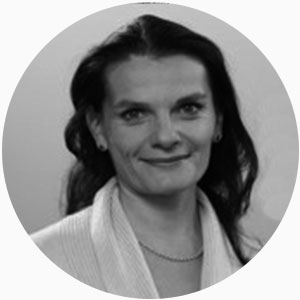
Anne Alix
Corteva Agriscience, United Kingdom
Anne Alix joined Dow AgroSciences, now Corteva Agriscience, in 2011, as distinguished laureate in Policy and Risk Management for Europe, Middle East and Africa, where she advises on Sustainability policies and precision applications. She has been working in the area of plant protection products risk assessment for 23 years. After a PhD in Integrated Pest Management (IPM) at the University of Rennes, Anne joined the French National Institute for Research in Agronomy (INRA) as an ecotoxicologist in the scientific unit for the risk assessment of crop protection products. Anne was nominated head of the Environment and Ecotoxicology risk assessment unit at the French Agency on the safety of Food (AFSSA, now ANSES), where she initiated scientific collaborations with the pesticide unit of EFSA. Anne then joined the French Ministry of Agriculture as the deputy head of the Section for Regulation of Plant Protection Products and fertilizers, in charge of the implementation of risk mitigation measures for pesticides and of post registration monitoring.
morelessMartin Atzmueller
University of Osnabrück, Germany
Martin Atzmueller is Full Professor (W3, tenured) at the Institute of Computer Science at Osnabrück University (Germany), where he holds the ROSEN-Group-Endowed Chair of Semantic Information Systems and heads the Semantic Information Systems research group. Professor Atzmueller is founding spokesperson of the Joint Lab on Artificial Intelligence and Data Science and founding member of the Research Unit Data Science at Osnabrück University, as well as Scientific Director - Cooperative and Autonomous Systems - at the German Research Center for Artificial Intelligence (DFKI).
moreless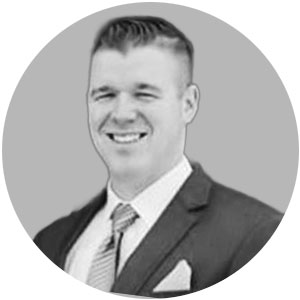
Adam Barlow
John Deere, United States
Adam Barlow leads precision application technology initiatives at Deere & Company, where he has served for over 16 years in various engineering and leadership roles. He is an active contributor to the American Society of Agricultural and Biological Engineers (ASABE) and the International Organization for Standardization (ISO), having chaired both U.S. and international committees on spray systems. Adam currently leads U.S. standardization projects in precision application, collaborating closely with the Enivronmental Protection Agency, United States Department of Agriculture, academic institutions, the Association of Equipment Manufacturers, and CropLife America. He also represents ANSI in global standards development.
moreless
Travis Bui
Corteva Agriscience /Unmanned Aerial Pesticide Application System. Task Force (UAPASTF), United States
Travis Bui has over 10 years experience having served in both Human Safety and Regulatory Affairs roles. He is currently working with Corteva Agriscience’s Human Safety Risk Assessment team focused on strategy and policy-related projects. In addition to serving as an expert in regulatory risk assessment, he is working to develop global regulatory guidance to enable crop protection applications with UAVs/drones. He is currently serving as Administrative Chair of the Unmanned Aerial Pesticide Application Systems Task Force (UAPASTF) which is generating UAV regulatory data for submission to global regulatory authorities to inform human and environmental risk assessments. He also serves on the CropLife America Drones Working Group and on the OECD WPP Drone/UASS Subgroup as a member of the Business-Industry Advisory Committee (BIAC).
morelessSébastien Codis
French Wine and Vine Institute (IFV), France
Sébastien Codis is an agronomist working at the French Technical Institute for Vine and Wine. He coordinates a joint research unit with INRAE and CTIFL institutes focused on the development and integration of innovative technologies for crop protection, including precision application and in-field biological assessment methods, in support of the agroecological transition.
moreless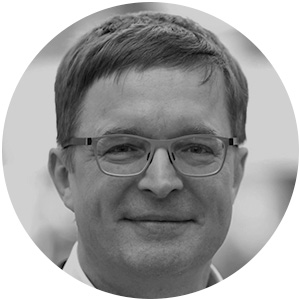
Joachim Dressel
Syngenta, Switzerland
Joachim Dressel is the Regulatory Lead for Precision Application and Digital Agriculture- in region Europe at Syngenta. He has previously held roles as Senior Regulatory Manager for insecticides, fungicides and herbicides at Syngenta, as an environmental consultant and as environmental exposure expert at BASF. He holds a PhD in Agricultural Sciences and has a passion for agriculture as well as our environment.
moreless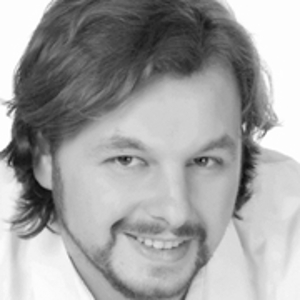
Andreas Focks
University of Osnabrück, Germany
Andreas Focks has been a full Professor for Environmental Systems Modelling at University of Osnabrück since 2021. An environmental modeller by training, Andreas worked at Wageningen Environmental Research, as a part of Wageningen University and Research in the Netherlands from 2011-2021 His work focusses on mechanistic modelling of effects of chemical and other stressors on the biotic environment, at levels of individuals, populations and communities. Since May 2023 he has been a member of the ESFA working group on \"Effect Models in ERA\", and from July 2020-April 2024 he was a member of the EFSA PPR panel.
moreless
Emilio Gil
Polytechnic University of Catalonia (UPC), Spain
Emilio Gil is a Full Professor at the Universitat Politecnica de Catalunya in Barcelona (Spain). He is the Head of Unit of the Agricultural Machinery Research Group, and has been professor at Cornell University (ISA). Expert member of ISO in several Working Groups related with spray application technology. Emilio has over 30 years of experience in the improvement of spray technologies, especially for eD crops. He is also the Author of the Dosaviña App to adjust PPP dose for vineyards and been advisor to several governments, for instance Serbia, Chile, Cyprus and Spain, advising them on the Sustainable Use Directive.
moreless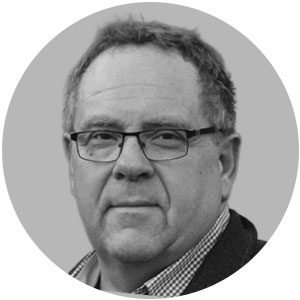
Bernhard Gottesbüren
Make-Sense Independent Consulting, Germany
Bernhard Gottesbüren is currently running Make-Sense Consulting (solutions in pesticide science). He worked > 35 years in the area of pesticide exposure assessment and lead the environmental fate modelling group in BASF. Since 2023 he has been involved in the development of frameworks for exposure and risk assessment/ management of pesticides, concering precision application.
morelessPeter Hloben
European Agriculture and Machinery Association (CEMA)/ John Deere, Germany
Peter Hloben is Supervisor for Product Compliance at John Deere in Mannheim Germany. He oversees a team of PS&C engineers responsible for the product compliance of Crop Care, Harvesting and Hay & Forage machinery. He is also the Chairman of PT24 at CEMA the association representing the European agricultural machinery industry.
morelessJaco Kole
Fedecom, The Netherlands
Jaco Kole is currently working as expert on the aera of crop protection technology for Fedecom, the Dutch association for agricultural machinery. Beside that is he as manager of SKL for more as 20 years responsible for the organization and supervision of the inspection of PAE in use in the Netherlands. Since 2005 he is active in working groups of CEN and ISO as expert on requirements and testing methods for PAE.
moreless
Jorge Olivares Rivas
knoell, Germany
Jorge Olivares Rivas holds a B.Sc. in Chemistry from the University of Navarra and an M.Sc. in Applied Environmental Geosciences from the University of Tübingen. His academic research focused on modelling of groundwater flow in karstic aquifers. Since 2020, he has been working as an Environmental Modeler at knoell Germany. In this role, he applies expertise in environmental geoscience and programming to support regulatory and research projects on pesticide environmental fate under EU regulatory frameworks.
moreless
Jens Wegener
Julius Kühn-Institute (JKI), Germany
Jens Karl Wegener has been Director and Professor of the Institute for Application Techniques in Plant Protection at Julius Kühn-Institute (JKI), since 2013. In 2017 he was appointed to be Honorary Professor at Technical University of Braunschweig, where he is supporting teachings of the Institute for Mobile Machinery and Commercial Vehicles (IMN). Furthermore he is conducting the interdisciplinary and university-covering block module \\"Innovative Plant Protection Technologies\\" together with students and instructors from five different Universities: His main focus is on optimization and risk assessment of processes and procedures in agriculture. In this context Prof. Wegener intensively studied the possibilities, limitations and benefits of new technologies for different agricultural purposes.
morelessAnthony Wilson
Health and Safety Executive / Chemicals Regulation Division (HSE/CRD), United Kingdom
Dirk de Hoog
Wageningen University and Research, The Netherlands
Dirk de Hoog is a researcher spray technology and precision agriculture at Wageningen Plant Research. His research focusses on spray deposition and emission of (precision) spray applications by measurements and modelling.
morelessParticipation Fee: € 1,195.00 plus VAT.
The registration fee includes the following benefits:
Representatives of an authority or a public university are therefore eligible for a reduced fee of € 695.00 plus VAT per person (please provide evidence). The reduced fee cannot be combined with other rebates.
Group Reductions
For joint bookings received from one company we grant a 15% discount from the third participant onwards.
Terms of Cancellation / Book without Risk
You can cancel your participation in our online events free of charge and without giving reasons in writing up to 1 week before the start of the event. In the case of later cancellations and non-login to the online event, no participation fees can be refunded.
In this case, however, you will receive access to the documentation after the event.
You can name a substitute participant free of charge at any time.
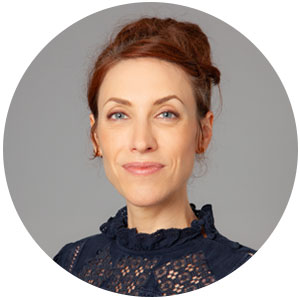
Anne Möller
Programme and conceptual design
+49 231 75896-84
amoeller@akademie-fresenius.de

Anne Möller
Programme and conceptual design
+49 231 75896-84
amoeller@akademie-fresenius.de

Anne Möller
Programme and conceptual design
+49 231 75896-84
amoeller@akademie-fresenius.de
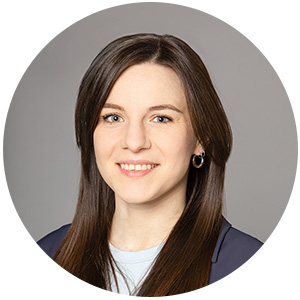
Alexandra Schardt
Organisation and participant management
+49 231 75896-74
aschardt@akademie-fresenius.de

Alexandra Schardt
Organisation and participant management
+49 231 75896-74
aschardt@akademie-fresenius.de
Present your Company at the Event.
You can personally present your products and services directly to your specified target group. We are happy to provide you with further information on our range of available options – from displaying company information at the reception counter to presenting your company with an exhibition stand.
We would be pleased to assist you personally:
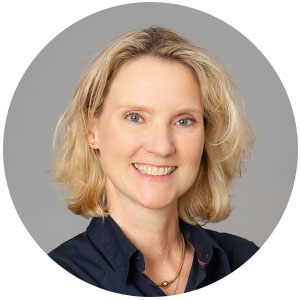
Monika Stratmann
Phone: +49 231 75896-48
info@akademie-fresenius.de
We offer journalists and editors a platform where they can get in touch with the experts.
If you are the editor of a specialist publication and interested in a press pass or media partnership, please contact us well in advance. We are happy to advise you.
Please contact us:
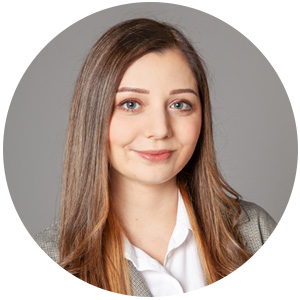
Katharina Geraridis
Phone: +49 231 75896-67
presse@akademie-fresenius.de
© Die Akademie Fresenius GmbH